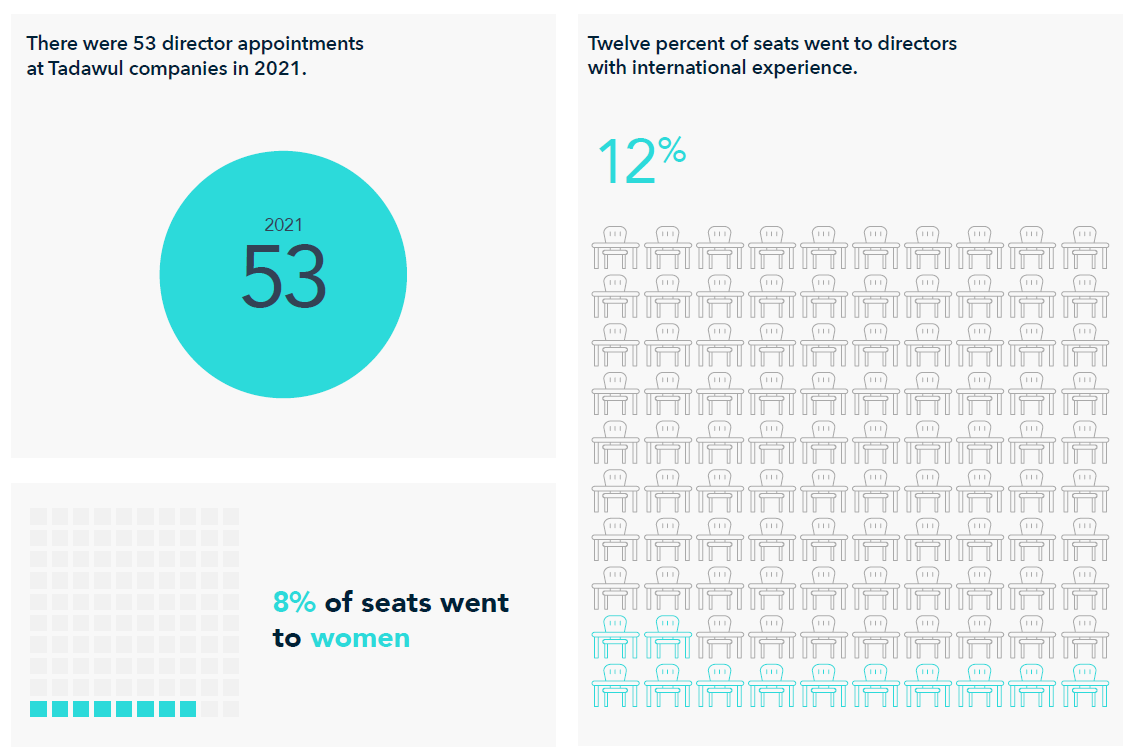Boards & Governance
Board Monitor Saudi Arabia 2022
About the report
Over the past few years, the world has experienced an unprecedented series of events that have fundamentally changed communities and organizations, and which, in many countries, have thereby changed the fundamental contract between organizations and the communities within which they do business. In Saudi Arabia, those events occurred in the context of a fundamental transformation of the public sector operating model and economy. The country’s Vision 2030 aims to provide a blueprint that will enable the Kingdom to create a more diverse and sustainable economy as well as use its strategic location to become an integral driver of international trade.
A key pillar of the vision is a focus on increasing the appeal and effectiveness of local industries, which, in turn, stimulates job creation for local people and attracts more investment. The 2030 vision supports the advancement of non-oil sectors such as digital, renewable energy, tourism, and retail.
As Saudi Arabian companies diversify their operations and step up their engagement on the global stage, they will need to continue their efforts to catch up with global corporate governance trends in areas including board composition, effectiveness, and resilience. Doing this will require boards to have more independent members with diversified skill sets and experience. Board members should be able to fully apply the various dimensions of the principles of good governance—such as strategy, performance, and succession planning—to the unique circumstances of each organization, shaping strong corporate cultures and communicating transparently.1 Internationally, boards are also expected to lead their organizations in driving a purpose-led culture; to own the conversation with employees about how strategy, purpose, and culture need to blend to enable sustainable growth; and to consider factors such as diversity, inclusion, and wellness as core to good operations.
For more information, download the full Board Monitor Saudi Arabia 2022 report.
Acknowledgments
Thanks to Richard Guest and Maliha Jilani for their contributions to this report.
References
1 For more on trends in board governance in the GCC, see “Developing directors,” GCC Board Directors’ Institute, gccbdi.org.
